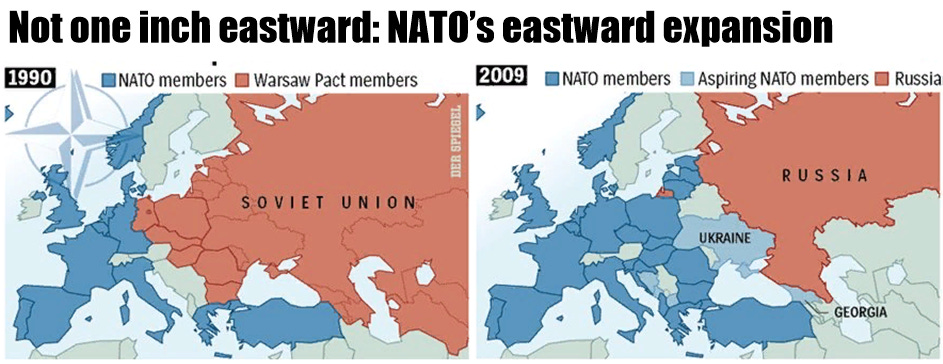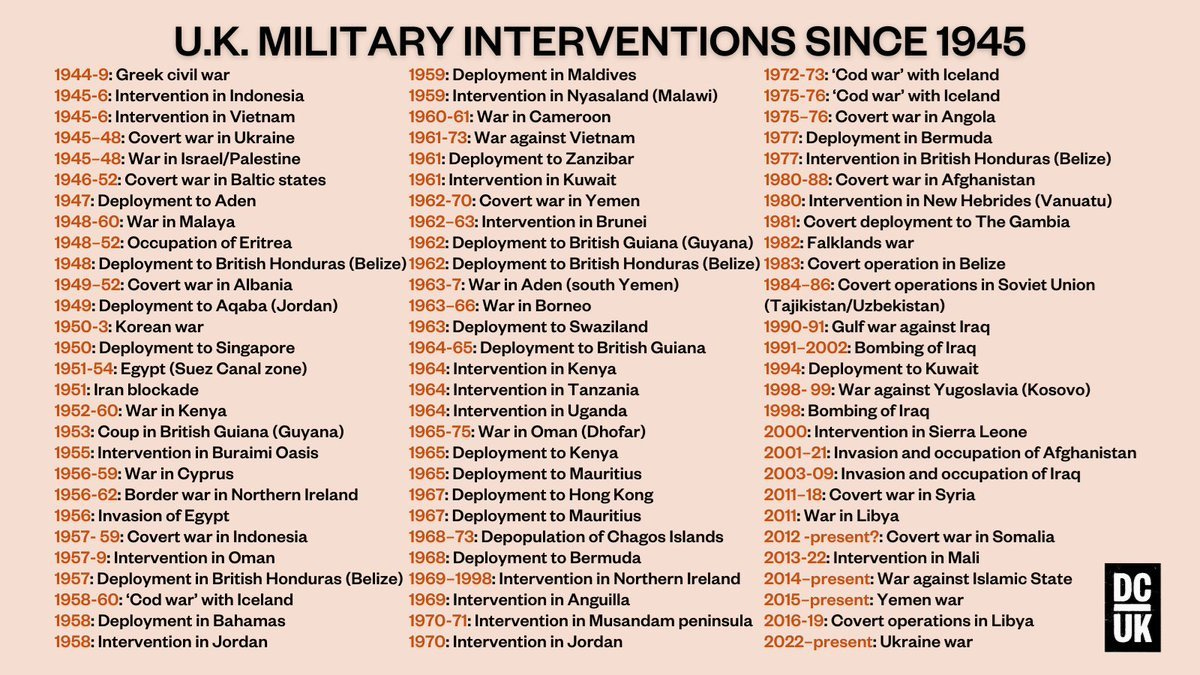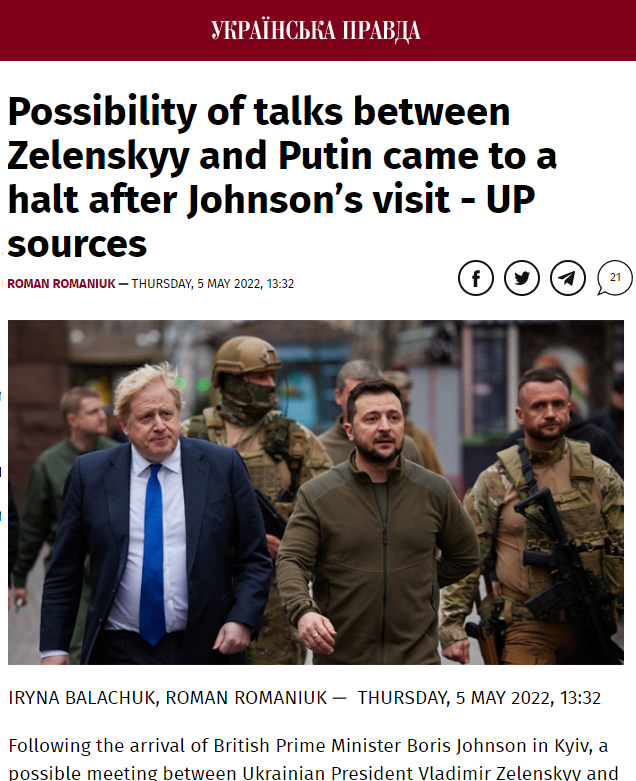UK’s leading establishment figures are gung-ho promoting World War III. What’s behind the agenda?
Last October I published an article titled “Britain’s secret diplomacy and European wars,” exploring the role of Britain in bringing about both of last century’s World Wars and contributing to the current escalation in Ukraine.

To be sure, we are not talking about the actions by British people or the legitimate institutions of their government. Rather, we are talking about a cabal that has operated British secret diplomacy and intelligence agencies in pursuit of the imperial agenda. Its objective is conquest and subjugation of nations for the benefit of the banking cartel based in the City of London and on Wall Street, and to the detriment of everyone else, at home and abroad.
The driving force behind the war-making
This cabal has been the prime mover behind many of the conflicts around the world, and has shaped the aggressive British foreign policy over the last few centuries. But this fact is seldom discussed in the media and has remained largely shielded from any public scrutiny. Even in Britain, few are aware of the fact that since the end of World War II, the UK has launched more than 83 military interventions in 47 nations around the world.

Of course, the reason for this is not because the British people enjoy sending their children off to war. Instead, there’s a dynamic at the core of the British financial and political system that incentivizes an aggressive foreign policy conduct. This dynamic is revealing itself again today.
The reluctant war escalators
It is increasingly clear that Russia is prevailing in Ukraine today and that she will soon be in position to dictate the terms of peace. That much has dawned on many leaders around the world, who are now calling to de-escalate the conflict and cease pointlessly prolonging Ukraine’s agony. Such calls have come most notably from Argentina, Brazil, Hungary and Croatia, but also from within many western nations.
According to several insiders including Colonel Douglas MacGregor, many Pentagon generals are now voicing serious reservations about further involvement in the conflict. Even the notorious RAND Corporation, which was the leading advocate in provoking the current conflict, has recently had a change of heart. They just released a study titled, “Avoiding a Long War: U.S. Policy and the Trajectory of the Russia-Ukraine Conflict,” where they point out that an extending the conflict in Ukraine would not benefit the U.S.: “U.S. interests would be best served by avoiding a protracted conflict.”
Britain’s gung-ho World War III promotion
At the same time however, the British establishment has gone on an offensive to call for escalation and even direct confrontation with Russia. Former PM Boris Johnson flew to the United States this week to meet with key Republican leaders in Congress and to urge for “Western unity and support for Ukraine and what more can be done against the threat Russia poses.”

Conservative MP and UK Defense Committee Chair Tobias Ellwood gave an interview to Sky News this week to promote the idea that, “we are now at war in Europe, we need to move to a war footing. We are involved in that, … we need to face Russia directly rather than leaving Ukraine to do all the work.”
The same Tobias Ellwood recently called for construction of a massive weapons factory in Poland, the project that is already being developed. UK’s former Defense Minister, Sir Gerald Howarth also spoke to Sky News this week to suggest that NATO should go into Ukraine, “boots on the ground,” because Ukraine must win the war.
Last summer, British Army chief, General Sir Patrick Sanders told the troops that they must prepare to fight Russia in a potential World War III conflict on the European continent.

Boris Johnson blows up peace negotiations
We must also never forget that in late March of 2022, President Zelensky had drafted a 5-page peace proposal and sent it to Russia’s President Putin. The two sides reached a preliminary agreement and Ukraine’s chief negotiator announced publicly that everything was agreed except for the status of Crimea. At that point in the war, there have been relatively few casualties.
But according to Ukrainska Pravda, Boris Johnson appeared in Kiev on 9 April, almost without warning bringing two messages: (1) Vladimir Putin is a war criminal and he should be pressured, not negotiated with; (2) Even if Ukraine is ready to sign some agreements with Putin, they are not (“they,” presumably meaning his government, or whoever had sent him to Kiev).

Three days after Johnson had left Kiev, Vladimir Putin went public and said that the talks with Ukraine “had turned into a dead end.” This account was confirmed a few months later by Fiona Hill, the former advisor to the US National Security Council in a Foreign Affairs article she wrote:
“According to multiple former senior officials we spoke with, in april 2022, Russian and Ukrainian negotiators appeared to have tentatively agreed on the outlines of a negotiated interim settlement: Russia would withdraw to its position on February 23 when it controlled part of the Donbas region and all of Crimea, and in exchange, Ukraine would promise not to seek NATO membership and instead receive security guarantees from a number of countries.”
But whoever sent Boris Johnson to Kiev was not ready for peace.
Is UK’s Russia derangement syndrome incurable?
London calling for war on Russia has been consistent for years now. In April 2021, well before Russia invaded Ukraine, Chatham House (Royal Institute for International Affairs) was calling for Europeans and NATO to confront Russia militarily. The report’s authors argued that there would have to be a “joint and public recognition that Europe is under attack, and that allies must stand together to confront it.”
In 2018, in his first interview after being appointed chief of the British Army, General Mark Carleton-Smith told the Daily Telegraph: “Russia today indisputably represents a far greater threat to our national security than Islamic extremist threats such as al-Qaeda and Isil.”
This irrational, seething hostility toward Russia has been one of the unyielding constants of British foreign policy going back more than two centuries. Even at the end of World War II, when the USSR was formally an ally, having done most of the heavy lifting to defeat Nazi Germany (including 27 million casualties), this hostility remained intact. In his famous Fulton speech, delivered in the presence of US President Truman in March 1946, Winston Churchill declared the USSR as the enemy of the west.
Where are the anti-war voices?
To be fair, we have warmongers in virtually all western governments today. However, in most nations, there are significant divisions within the political spectrum and relatively strong anti-war factions. It is important to note, there is and always has been a visceral opposition to war among the British people. However, they are being systematically silenced, intimidated and marginalized by the pro-war establishment. The former labour leader Jeremy Corbyn has been effectively sidelined and replaced with pro-war Sir Kier Starmer. Other anti-war voices must also struggle to be heard at all.
A gathering of leading public figures was planned at the Conway Hall in London on the 25th February this year (you can find them here on Twitter: @No2NatoNo2War) but further to overwhelming pressure from the pro-war establishment, Conway Hall shocked the organizers by cancelling the event. Among the speakers who were slated to participate were Craig Murray, Clare Daly, Mick Wallace, Max Blumenthal, Chris Williamson, George Galloway and many others. These leaders would certainly draw very large crowds. Hopefully, they will still do so, in another venue. Clearly, the anti-war sentiment is there, as it always has been, but the establishment would rather you not know about them nor hear a word they have to say.
The real war is people vs. the banks, and it is now
To prevent another great war from breaking out in Europe, we must clearly identify the prime movers behind the escalation of hostilities and their motives: they are the networks of the empire’s vested interests, and the ultimate beneficiaries of war and subjugation of other nations. When we trace the system of incentives that catalyzes wars all the way to their origins, they invariably lead to the international banking cartel.
The fact that Britain is the host to the financial parasite that is the City of London, and that she is incurably hostile to Russia, is not a coincidence. British establishment’s obsession with destroying Russia is today the most dangerous force facing humanity, capable ultimately of ending it. As Lord Acton said, “The issue that has swept down the centuries and which will have to be fought sooner or later is the people versus the banks.”
Related to the above, last year I published a report about the shocking role of the British foreign policy cabal, led by PM Neville Chamberlain in managing the Czechoslovakia crisis which lead to “Appeasement” and the 1938 Munich treaty. The story is VERY different from what they taught us in school. You’ll find the article and the video at this link: “Appeasement: the shocking truth about the 1938 Munich agreement.”
We shall know them by their deeds.
Aye, perfidious Albion indeed. Sassenach square-mile bastard-psychopaths possess no ‘stop and reflect’ mode, let alone a ‘reverse gear’. So Olde Threadneedle might require a ‘deposit settlement’ visit from a certain Mr. Kinzal.
Were that to be the case… on my GAF meter? Not a ghost of a flicker.
After all, cancerous vermin must be culled from time to time.
LikeLiked by 1 person
An outstanding article; Alex Krainer has exposed this truth elegantly and succinctly, a subject I’ve researched myself extensively and found to be sound “All wars are bankers wars”
LikeLiked by 1 person
Thank you lejeu41!!
LikeLike
It is the same brainwashing in Britain that Churchill was a good guy that we have in the US that Grant was a good general and president.
LikeLike
With WW2 it’s hard to tell if the UK was subcontracting to JP Morgan & Co or vice versa, that’s the real special relationship.
LikeLike
There is a 4 part documentary series from Adam Curtis called ‘The Mayfair Set’. This tells the story of British Foreign policy from the 60’s onward. Selling weapons has been a way to fund British foreign policy and gain influence in emerging nations. Well worth a watch if you have the time. Here is part 1 of the Mayfair Set. https://youtu.be/oz0WPMpx71s It explains how the PMC, the SAS was transformed into an arm of the Foreign Office and driver of weapon sales.
Interestingly, Mark Carney gave a speech in Liverpool about a decade back were he outlined that the BOE was intending to create the right environment for UK ‘tech’ companies to be competetive on the world market. He said sales of weapons would solve the UK’s deficit problem. I get the impression that Ukraine represents another of its business ventures and quite possibly significant investments in Ukraine that they are about to loose.
LikeLiked by 1 person
Not only that, but when Paul McCartney died they forced the three remaining Beatles to stay in business because the crown needed the lucrative revenue from the band, so they concocted the fake Paul who is still out there pretending to be Paul McCartney. Tons of evidence. After that they infiltrated the Brit entertainment industry and we are stuck with uber-rich propaganda non-bands and a dead John Lennon who defied the Brit spy establishment. Please look at the term in Rock history called “The British Invasion.” I lived through it.
LikeLike
I’m not altogether convinced of that and I recall that it was first put forward in the 70’s. I have never seen any evidence to back up this claim. Even it is true, the revenue from Beatles music is insignificant compared with arms sales and all the contracts that follow them.
LikeLike
Almost becoming a repeat of the late 30’s with Putin now filling the Hitler role.
Once Hitler started printing his own currency rejecting the bankers who had financed his rise he had to be destroyed. But he was Time Magazines ‘man of the year’ as late as 38 for turning around the Germany economy.
In mitigation of Chamberlain I have read that he was aware of the desire for war and the planned destruction of Germany which is why to resist those forces pushing for it.
But it was Churchill’s plan and those of his backers to destroy Germany – he admitted that German industry and prosperity were a direct threat to this country.
Boris Johnson now seems to filling the same role towards Russia. History repeating…?
LikeLiked by 1 person
Almost 78 years ago… https://www.globalresearch.ca/71st-anniversary-of-dresden-fire-bombing-allied-war-crime-prelude-to-the-cold-war/5507765
LikeLike
The Spider’s Web (documentary) Michael Oswald’s film The Spider’s Web reveals how at the demise of empire, City of London financial interests created a web of secrecy jurisdictions that captured wealth from across the globe and hid it in a web of offshore islands. Today, up to half of global offshore wealth is hidden in British jurisdictions and Britain and its dependencies are the largest global players in the world of international finance.
LikeLike
“ Bingo!” A remark wrote on a piece of paper by Alex Krainer, in response to Gonzalo Lira joining the dots in a recent forum, also with Tom Luongo. An extremely important documentary, made with a budget of just £4000 I understand. Have viewed it a total of nine times and every time I glean additional information which cements categorically the overall agenda we are witnessing unfold. The capital held in the British offshore jurisdictions amounts to trillions; this is wrath of god money that can buy anyone and move any market, the unseen empire that went underground when the British physical empire imploded. Great comment, a must! see expose of how the square mile has lost none of its stranglehold on geopolitical outcomes.
LikeLike